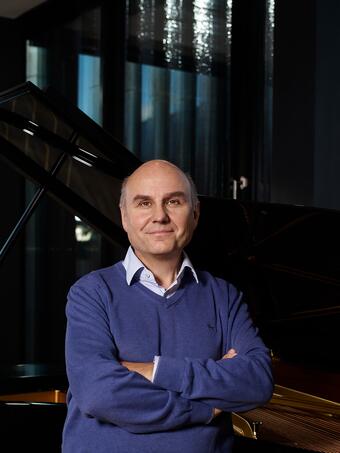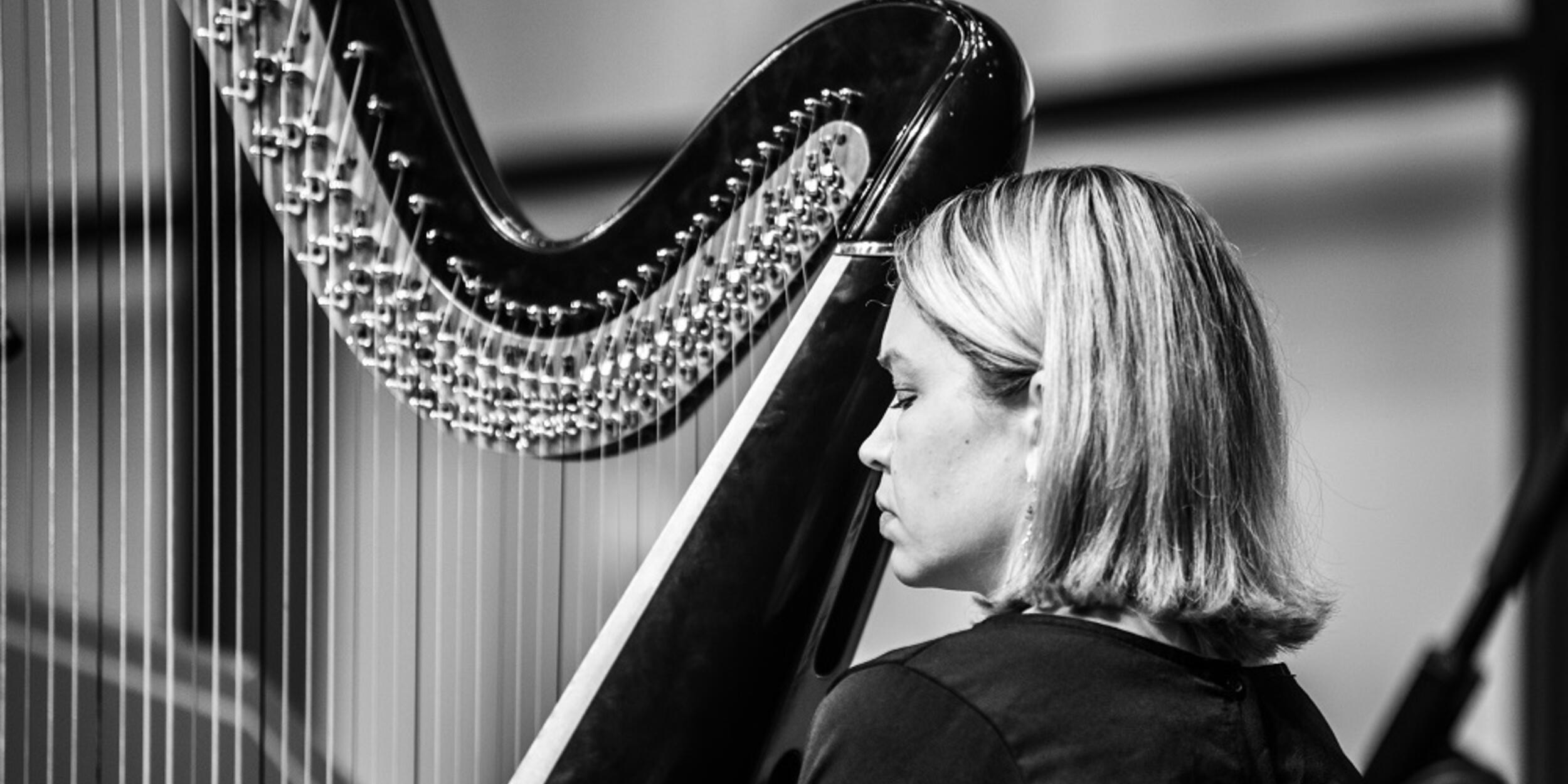
Teacher of Keyboard Skills
+++ Registration for the entrance examination for teacher training (Art Education and Design:Technology.Textile) still possible until 10th June 2025 - all further information on the course pages! +++

The bachelor's degree in Instrumental Pedagogy is a fundamental qualification for those wishing to teach their instrument. Accordingly, the aim of the course is to impart the necessary artistic, pedagogical and academic competences for the teaching of music in diverse forms. Upon completing the study programme, students are qualified to teach the harp, as well as their second study or specialism, in Austrian music schools.
Length of course
8 semesters / 240 ECTS-AP
Language
German
Application period
1.2.–28.3.2025
Admission examinations
summer semester each year
to the dates
Downloads
Holders of a degree in instrumental/vocal pedagogy are qualified to teach their instrument(s) in music schools, in cooperation with general education schools, as freelancers, and at universities, colleges, and other post-secondary educational institutions.
In addition, this study programme opens up many other fields of music pedagogy and music practice. These include performing as a soloist or as a member of an ensemble or orchestra, music-related research, work in the field of opera/theatre/concert pedagogy, or jobs in music management, press, publishing and media.
The Bachelor's degree in Instrumental/Vocal Pedagogy is divided into the following artistic, pedagogical and academic modules:
Within the scope of the elective subjects (special study focus), various profiles are offered, of which each student must complete at least one:
Upon completing the study programme, students are qualified to teach their principal study (main instrument), as well as their second study or specialism, in Austrian music schools. In addition, students who have chosen "elementary music and movement in music schools (EMP)", "music theory" or "new media" as their special study focus are also eligible to teach these subjects.
To obtain their bachelor's degree, students must submit a bachelor's thesis in addition to successfully complete all courses and examinations in all modules, some of which will be assessed by a panel. Such examinations include an artistic examination in the principal study at the end of the 4th semester and the 8th semester respectively, an artistic examination in piano (compulsory subject) at the end of the 4th semester (depending on the chosen principal study), an examination in instrumental/vocal pedagogy - usually at the end of the 8th semester, and an examination in the didactics/teaching practice of the principal study - also usually at the end of the 8th semester. If applicable, scheduled examinations in the chosen compulsory special study focus will also be held.
Documents required for online registration
Form of the documents
BA in Instrumental Pedagogy - Entrance Examination - Harp (principal study):
One work must be performed from memory.
Examination requirements (not for principal study Jazz/Pop):
Three pieces of different styles must be performed. The following examples give an indication of the level of difficulty expected:
An easy sight-reading task will also be set.
Examination requirements (only for principal study Jazz Pop):
Three pieces of different styles must be performed. The following examples give an indication of the level of difficulty expected:
Examination in basic knowledge of general music theory (written and oral), including an aural test.
Requirements in the written part of the examination (approx. 60 minutes):
• Notation of melodies from memory
• Continuation of given melodies
• Composing a short melody to a given text
• Noting down one-part and easy two-part melodic dictations as well as rhythmic dictations
• Forming all triads and seventh chords including inversions (especially dominant-seventh chords in root position and 3rd inversion)
• Recognising and notating simple figured basses as well as harmony functions and harmony steps in a musical context
Requirements in the oral part of the examination (5-10 minutes):
Sample exam questions and further help for preparation can be found HERE.
Applicants are required to submit a letter of motivation detailing their reasons for choosing to study instrumental and vocal pedagogy (approx. one DIN A4 page).
Applicants should prepare a short teaching task (approx. 5-10min), which they will carry out in a group with fellow applicants. The aim here is for applicants to demonstrate their own strengths in music education. The topic can be freely chosen, e.g. a warm-up, body percussion, improvisation, rehearsing a song or simple choral piece, rehearsing a simple chamber music piece.
A short interview with the examination panel will take place, in which the letter of motivation, the programme chosen for the audition in the principal study, and the practical teaching task work will be discussed.
All applicants whose first language is not German must provide proof of German language skills by the time of enrolment at the latest.
Required language level: at least B2 (Common European Framework of Reference for Languages CEFR 2001).
Information on the recognised certificates can be found HERE
Procedure
After passing examination A, candidates will be admitted to partial examinations B-E (possibily in a different order).
List of audition dates
The repetition of composite parts of the audition in case of failure is not permitted; the audition can only be repeated in its entirety and only in the next academic year. The audition can be repeated an unlimited number of times.
Please note that the Mozarteum University Salzburg offers various support options at the time of your audition and during your studies if you have a disability or a chronic illness.
If this applies to you and you would like to take advantage of counselling, please contact Claudia Haitzmann: claudia.haitzmann@moz.ac.at or +43 676 88122 337.
You can find more information about starting your studies here: